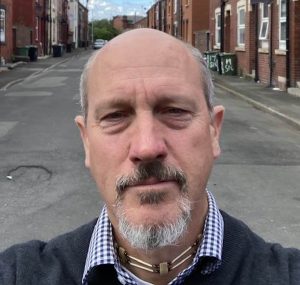Dear UTU Friends,
As some of you probably noticed, I have begun using my ancestral name, Yidokodiltona. Almost everyone has been respectful of that decision and I am grateful that I have not been interrogated. Having said that, I think it would be helpful for you to understand why this is important to me and why and how I have come to this particular place.
My ancestral story is fundamentally marked by colonialism — and missionary activity. My last-named Native ancestor on the paternal side was Yidokodiltona — it’s recorded in a missionary journal. After that, our Native names virtually disappeared. In receiving his name, I am doing what people have done from the beginning of time, naming themselves or their loved ones in the memory of their beloved. That feels familiar. However, in receiving my ancestral name, I am also attempting to repair an injury that runs very deep. It is difficult to explain, but because of my story, First Nations history in the Americas, and the politics of colour in the U.S., my life has been one of trying to mend something broken but often denied — many have tried to tell me (and maybe I even told myself) that it wasn’t that broken or if it was, it was a long time ago, and so on. The problem is that I can’t do that — or I won’t do that. It means denying a large part of my life and it, my life, does not make sense without the Native voice. It just doesn’t feel right or whole. Activating my paternal ancestor’s Native name is a way of repair, first of all for me personally and spiritually, but also publicly and politically, as testament.
 As in most things Native, we don’t do this sort of thing lightly. Or without guides. One of my guides has been a mixed culture person like me — and a not-too-distant cousin (our ancestors come from the same camp on the Lower Tanana of Alaska). She is the artist who has gifted me with the wristband you will see me wearing and other articles. My aunt, also mixed culture (now deceased) gave me the beaded-case for my eye glasses. My mother, my oldest living maternal relative of our tribe, has given me her blessing as well — for First Nations in Alaska, we’re matrilineal, so that means a lot. An Ojibwe woman, a traditionalist and also a Christian, took this name to a moon ceremony on my behalf — in the Native world that I belong to, our mothers and sisters play a significant role in our human formation, and I’m no exception.
As in most things Native, we don’t do this sort of thing lightly. Or without guides. One of my guides has been a mixed culture person like me — and a not-too-distant cousin (our ancestors come from the same camp on the Lower Tanana of Alaska). She is the artist who has gifted me with the wristband you will see me wearing and other articles. My aunt, also mixed culture (now deceased) gave me the beaded-case for my eye glasses. My mother, my oldest living maternal relative of our tribe, has given me her blessing as well — for First Nations in Alaska, we’re matrilineal, so that means a lot. An Ojibwe woman, a traditionalist and also a Christian, took this name to a moon ceremony on my behalf — in the Native world that I belong to, our mothers and sisters play a significant role in our human formation, and I’m no exception.
I will also say that everything Native is, for me, salvage. I have come to where I am today the way someone comes to collect precious things after some catastrophic loss. You walk a little ways, you see something of yourself, or it calls out to you, and you recognise your name in that call. For me, that’s the way it has been. If you read my name, pray for indigenous peoples in our world — whether living on a reservation or in the inner city, or somewhere between, indigenous Nations face enormous challenges. But as you might also guess, our Nations include people of courage and great wisdom. When you see my Native name, and you sound it out, remember that you’re holding these in the presence of the Great God of Heaven.
In the Spirit of our Creator,
Rob Hoch (Yidokodiltona)
18 December 2023



